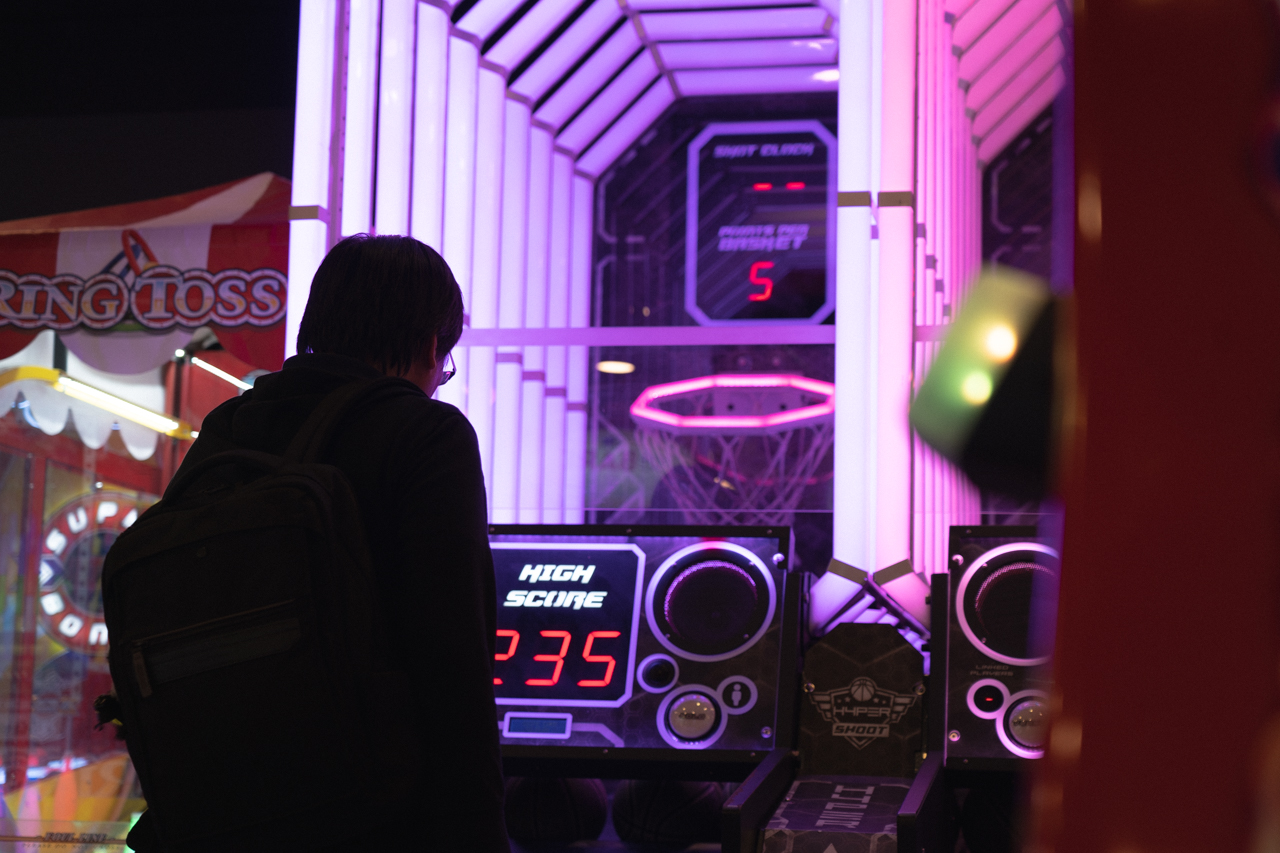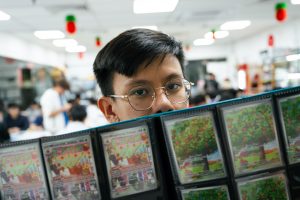The first time I drove a car, I wrecked it.
Soon after my tiny hands gripped the unfamiliar steering wheel, and my little foot stomped on the accelerator pedal, keeping control fast became an ever-shrinking spot in the rear-view mirror. The result was pure carnage. And I was thrilled.
Instead of being filled with the fear of having to tell my parents I’d destroyed their prized possession, I roared with laughter before quickly tapping my card and going for another round of Daytona.
If this all sounds vaguely familiar to you, then congratulations, you had a swell childhood that was likely filled with fun, friends, and general childlike merriment. I’m also willing to bet that like me, it’s been ages since you last stepped into an arcade.
Somewhere along the line, we grew up. Firing a gun happened only under a disgruntled encik’s careful watch. Dancing was done exclusively in clubs. Virtual credit was nothing compared to actual credit.
But although we’ve stopped going, the arcade has never truly left us. TV shows like Stranger Things and movies such as Ready Player One keep the memories alive. Numerous arcade-themed bars have popped up as well, each allowing us to spend the night trying to beat that damn Pac-Man high score. Like how we used to.
Not everyone is like us. Some Singaporeans who’ve grown up with the arcade have stayed because to them, the place means so much more than games.
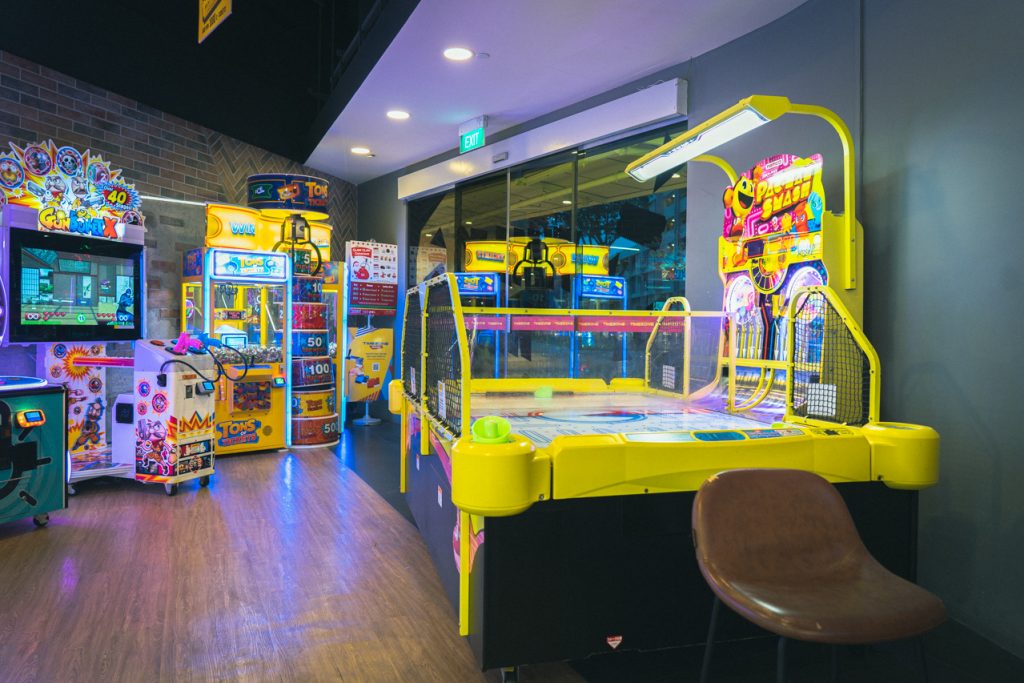
This is what 31-year-old Chong Qi Wen tells me as his last shot leaves his hands, careers off the brightly-lit backboard and falls nicely into the moving rim with a metallic clink.
It is slightly past 4 PM on a Saturday afternoon and yet again, Qi Wen has failed to break the high score on the arcade’s basketball machine. Laughing, he tells me today wasn’t his day but that he’ll be back soon enough though, ready to give it another go. Surrounded by hundreds of flashing lights and a symphony of cacophonous bings and zaps, he exudes an air of relaxed, optimistic calm.
Like many Singaporean children, Qi Wen was enrolled in various enrichment classes when he was much younger. Most of these classes took place on the weekend and in order to keep his son motivated, Qi Wen’s father would permit him half an hour in the arcade to relax afterwards.
“After picking me from maths tuition, my dad and I would come here before going back for dinner. It was a weekly treat and the best part was that my dad played with me.”
Unfamiliar with the complex mechanics of games like Soul Calibur or Tekken, Qi Wen and his dad made the much simpler basketball machine in the corner, theirs. Laughs were shared; the bond between father and son was strengthened, and a promise was made—a huge part of why Qi Wen still visits the arcade of his youth.
Frustrated at how they never came close to a good score, a younger Qi Wen asked his father if it was even possible to “beat” the game. His father said it was with enough practice, promising they would do it together one day.
However, after his father’s numerous health issues, that promise will unfortunately never become a reality. But it’s not all doom and gloom. Rather than shying away from places that might trigger an emotional response, Qi Wen is thankful he still has a place to visit on the weekend to continue their unofficial tradition.
To him, the arcade is where all the happy times he had with his father live. The memories made here were theirs alone, separate from family dinners or outings with his mother and brother. No matter how the crowd changes; whether claw machines replace Street Fighter consoles, Qi Wen will keep coming back as long as there’s a simple basketball game.
It’s just his preferred way of remembering the time spent with his father.
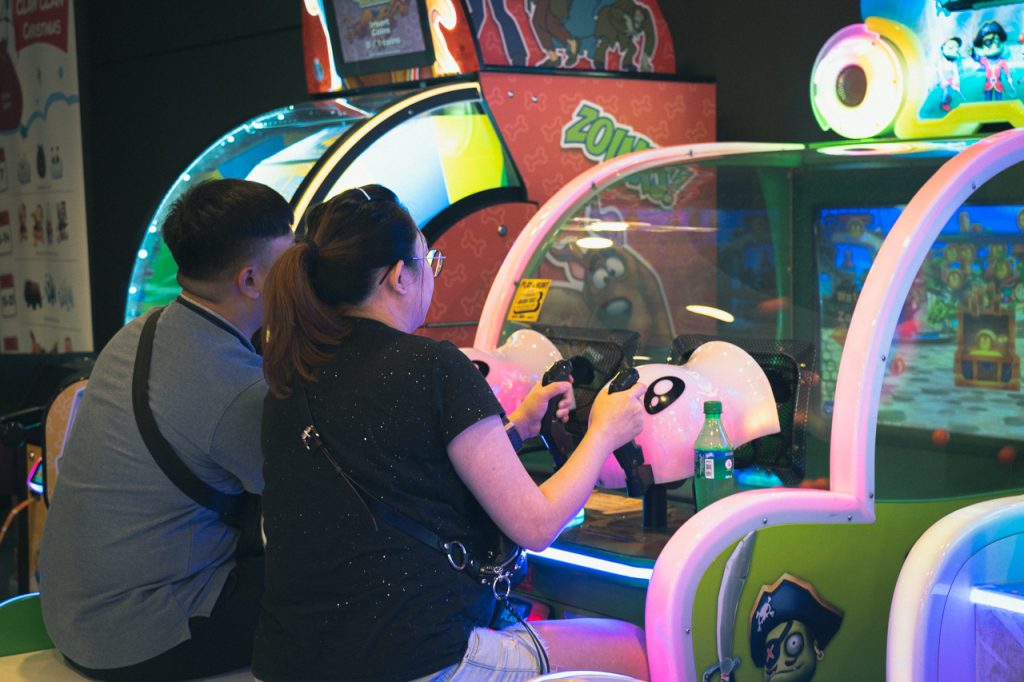
Thanks to games like Time Crisis or Metal Slug, making a new friend was extremely easy. All you had to do was tap your card and tadah, a new player has just entered the game. Or for that matter, your life. The game doesn’t even have to be co-op. You just sit next to someone and join the fun.
This is exactly what happened to Chester Lim, 29. Like me, Chester was fascinated by the Daytona racing games as a child and shares that he used to watch in awe at how the older boys deftly switched from 4th to 2nd gear in order to drift around tight bends quicker. He tells me that even though he had no idea what they were doing, it just looked “super cool”.
One day, Chester decided to find out.
“I remember asking this older boy if he could explain but he brushed me off, telling me to come back later because he was busy playing with his friends. He probably thought he’d gotten rid of me! He lived up to his word though. When I returned 20 minutes later, they taught me everything I needed to know. I’ll never forget that.”
From that point forward, Chester made it a point to interact with anyone he played with and soon, familiar faces turned into friends. Arcade friends eventually became good buddies. And one particular good buddy even became his girlfriend. Outside of his clique in school, the friends he found in the arcade were—and still are—the closest people to him.
Today, Chester and his friends still meet regularly at the “lao di fang” [old place] for a round (or twenty!) of their favourite racing game. From starting off with Daytona, moving on to Initial D and finally Wangan Maximum Tune, Chester tells me that the arcade has changed in some ways but as far as he’s concerned, the spirit of communal gaming hasn’t.
“Like when we play other games and win tickets, we’ll give them to the younger kids so they can redeem those toy pens or sweets. It’s about the community la,” he says to me with a smile.
This strong sense of community is why Chester and his friends will continue to return for the foreseeable future, despite all of them being busy with their own lives. To him, games are not just about having fun but having fun with others. Gaming alone at home is just too boring he tells me.
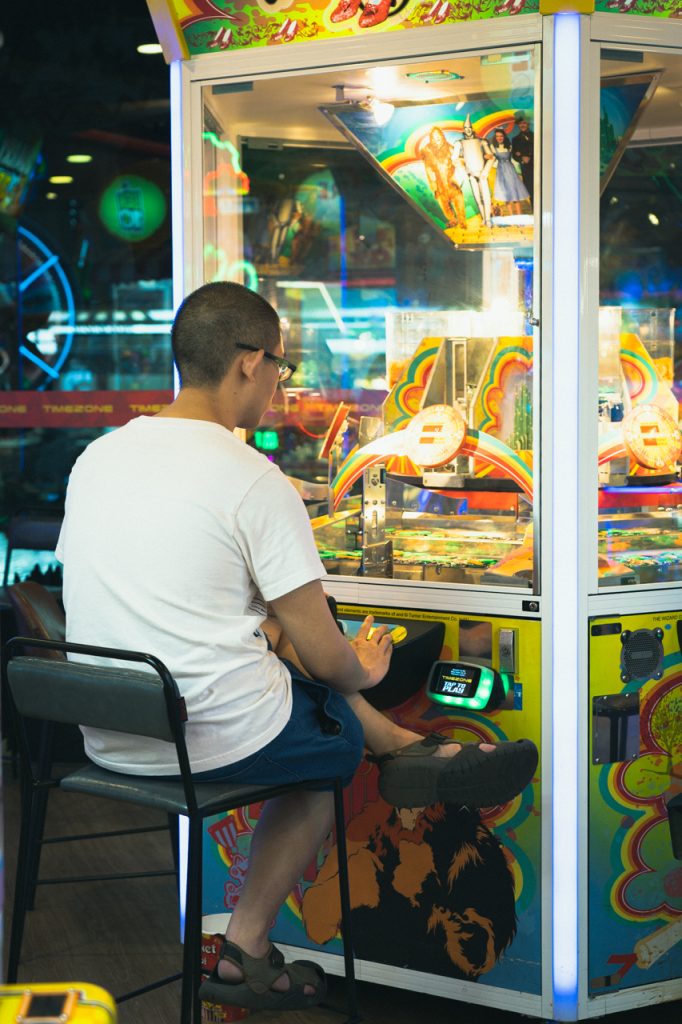
When you step into the place years later, you’re greeted by the same twinkling lights. That mechanical clunk of a toy gearstick being smashed around is instantly recognisable. The Pump It Up players are still dancing in sync, a crowd transfixed by their perfect form.
Yes, some machines might be unfamiliar but it doesn’t matter. All of a sudden, you’re 10 years old again looking for some fun. This is why so many others I talked to find themselves drawn back to the arcade of their youth.
Frankly, growing up is tough. You have your own family to worry about; retired parents to look after; study or housing loans to repay. You’re constantly worried and the kid in you just wants a break. Some people deal with the stress by taking up golf. Majority head back to the place where their younger selves found so much joy. It was so simple back then. It is so simple right now.
Ever since arcades like Timezone arrived on our shores way back in the early 90s, generations of Singaporeans have allowed their inner child to roam free in this multifaceted family entertainment center; to cast aside their worries for a bit and just have fun—whether with family or with friends.
And generations to come will continue to do so. According to the older gamers, that is what the future of the arcade will be. No matter how it changes, as long as the arcade exists, it will always be a home. A timeless testament to happy memories and everything innocent about childhood.
Challenge us to a game of Pump It Up or Wangan Maximum Tune here: community@ricemedia.co

